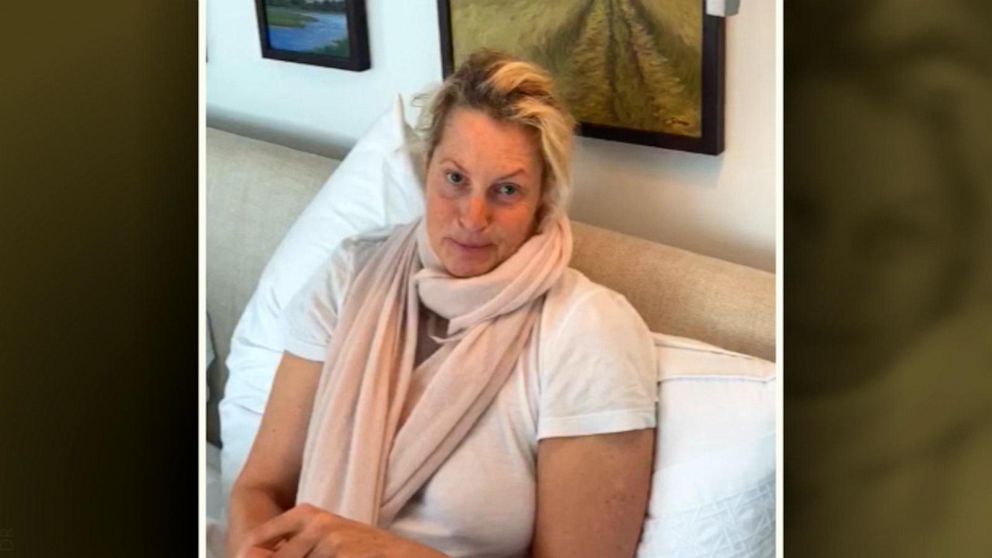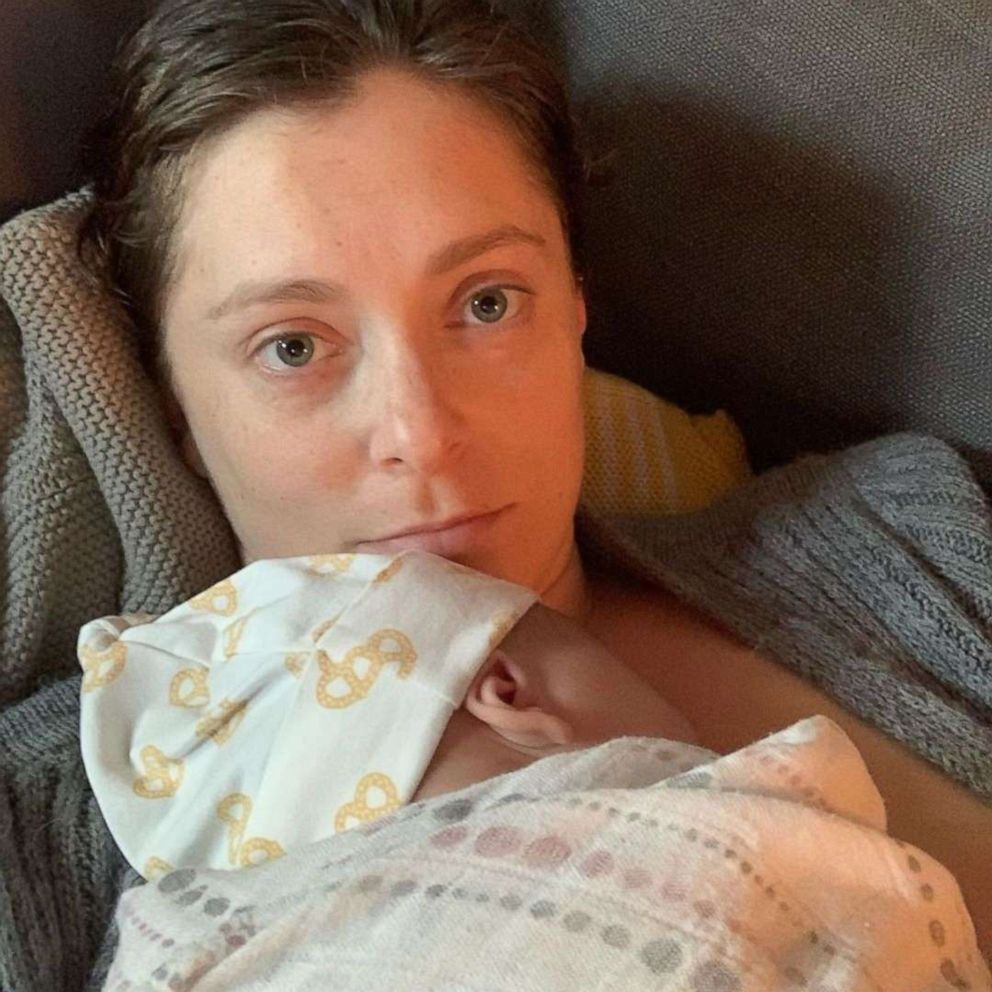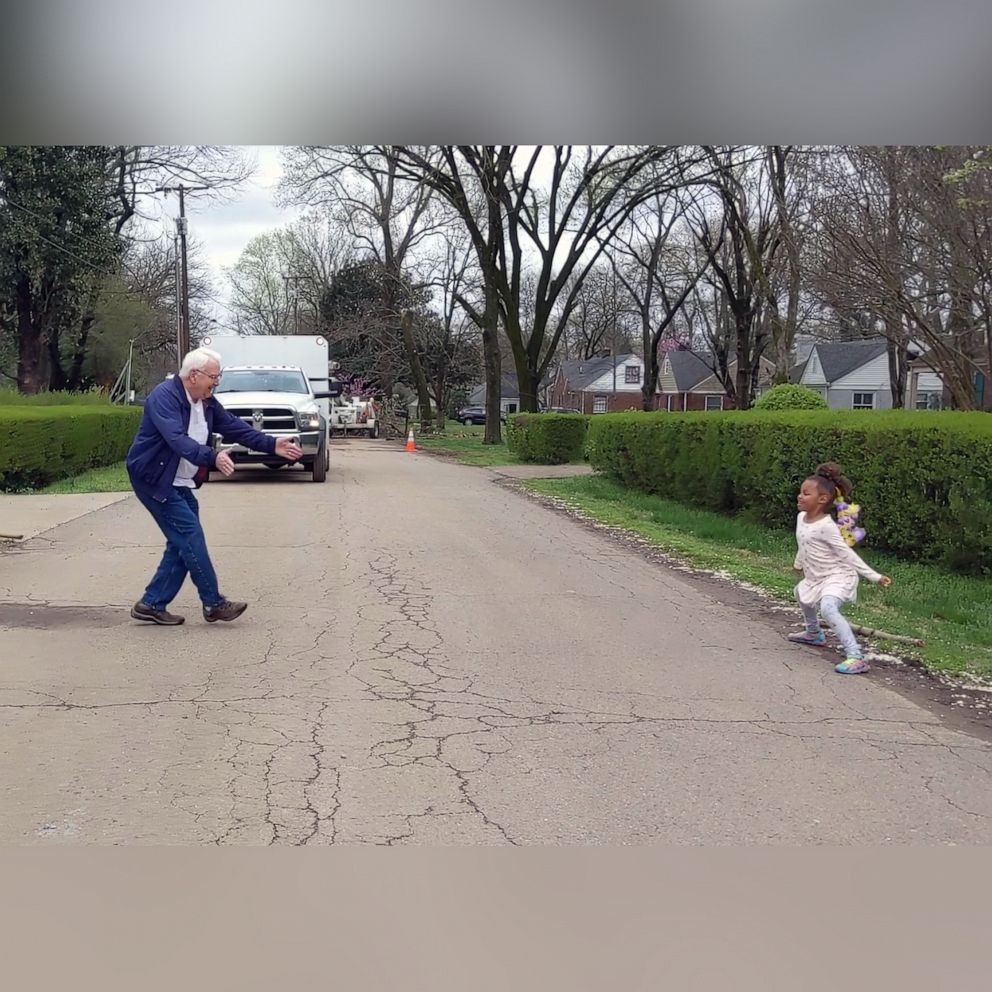Ali Wentworth describes her experience with COVID-19: 'Like a really, really horrible flu'
Wentworth said the virus started as a "real tightness" in her chest.
Actress, comedian and bestselling author Ali Wentworth is sharing her experience after testing positive for COVID-19, the illness caused by the novel coronavirus.
Wentworth, a mom of two and the wife of "Good Morning America" anchor George Stephanopoulos, first revealed her diagnosis Wednesday on Instagram, writing, "I've never been sicker."
Wentworth is now self-isolating in the New York home she shares with Stephanopoulos and their two daughters. Wentworth is staying by herself in one room of the home to protect her family from the virus.
She shared more about her symptoms and what's it's been like to face coronavirus in an interview that aired Thursday on "GMA."
"First of all, thank you for all your well-wishes," Wentworth said. "You know I'm feverish if I'm allowing myself to go on national television with no makeup on."

"What started was I had a real tightness in my chest," she said. "I was walking my dog Cooper, and I just felt very, very winded and I assumed, of course, it was because I never work out and I'm out of shape, but it was it was too heavy for that."
"And I came home, wasn't feeling great and it wasn't until the fever started that I realized this can't be a common summer cold," Wentworth said. "I went and got tested ... which was three days ago, and now I've had high fevers, sort of 101, 103 [degrees Fahrenheit]."
"Achy joints is a big thing. It feels like a really, really horrible flu," she said. "And you know, I'm still in it now, but I can tell you the things that help [are] Tylenol, chicken soup. I took some hot baths when I had chills and I have two dogs that sleep on my bed with me."
"So anyway. Be safe. Stay home," she said.
What to know about coronavirus symptoms, caregiving
Wentworth had "classic" symptoms of COVID-19 prior to testing positive, according to Dr. Jennifer Ashton, ABC News chief medical correspondent.
"She presented with classic symptoms -- fever, cough, shortness of breath," Ashton said Thursday on "GMA." "But there is such a long list [of symptoms]. People can have muscle aches, they can have headaches, they can have fatigue, they can have some GI symptoms even."
"And then we’re possibly seeing some complaints also of loss of smell or loss of taste," she said. "It’s a wide range and, as we learned just yesterday, 25% of people who are infected with COVID-19 have no symptoms at all."
Stephanopoulos said he is so far showing no symptoms of COVID-19 but wonders if he too could have had the virus but been asymptomatic.
"Remember that so many of us in New York City are already presumed to have had it," he said. "I wonder myself whether I already had maybe a mild version and just didn’t even know it, just there’s no way to know right now."
"I’m taking care of myself. If I develop symptoms I’ll obviously go get the test," Stephanopoulos added. "We’re acting basically to the outside world as if we had it. We’re staying inside the house. I’m the only one who goes in and out [of her room]."
Stephanopoulos noted he has taken on the caregiver role for his wife, while their daughters have not gone into the room where Wentworth has been self-isolating since Monday.
"I have to get a little bit close sometimes to take her temperature and do the oxygen test and I bring her food," Stephanopoulos said. "I’m definitely being careful in wiping down and wearing gloves. I have not been wearing a mask."
"Usually she takes care of us 24 hours a day and now we’re doing our best to take care of her," he said.
Ashton noted that Stephanopoulos and his family are practicing the "home version of social distancing" that must be done when a person in the household tests positive for COVID-19.
"The key is really isolation and you guys are doing it right," she said. "We have to remember that everyone in the household who has been exposed should presume that they are infected until they’re out of a 14-day window of observation."
"Isolating, keeping them out of the kitchen or wiping down surfaces in any common areas is really, really important," Ashton explained. "That’s the key."
What to know about coronavirus:
- How it started and how to protect yourself: coronavirus explained
- What to do if you have symptoms: coronavirus symptoms
- Tracking the spread in the US and Worldwide: coronavirus map







